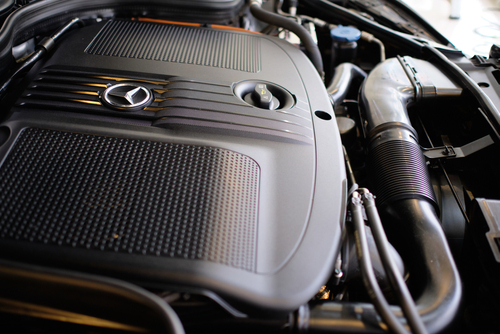
Taking care of your vehicle’s engine is crucial for maintaining optimal performance and prolonging its lifespan. Preventative maintenance plays a significant role in ensuring that your engine runs smoothly and efficiently. In this blog post, we will delve into the fundamentals of preventative maintenance specifically focused on engine health. We will explore the importance of regular inspections, fluid changes, and component replacements in maintaining optimal engine performance. Additionally, we will offer insights into common engine problems and their early warning signs, empowering readers to identify issues proactively and avoid costly repairs.
Regular Inspections
Regular inspections of your vehicle’s engine are essential for detecting any potential issues before they escalate into major problems. During an inspection, a mechanic will check various components of the engine, such as belts, hoses, filters, and spark plugs, to ensure that they are in good condition. They will also look for signs of wear and tear, leaks, or other issues that could impact the performance of the engine.
These inspections are typically performed during routine maintenance appointments, such as oil changes or tire rotations. By keeping up with these inspections, you can catch any problems early on and address them before they cause extensive damage to the engine. Additionally, regular inspections can help improve fuel efficiency, reduce emissions, and extend the life of your vehicle.
Fluid Changes
Proper maintenance of fluids is crucial for the health of your engine. Engine oil, coolant, transmission fluid, and brake fluid are all essential for ensuring that your engine operates smoothly and efficiently. Over time, these fluids can become contaminated or depleted, leading to issues such as overheating, poor lubrication, or brake failure.
Regular fluid changes are necessary to prevent these problems and keep your engine running at its best. Check your vehicle’s owner’s manual for recommended intervals for changing each type of fluid, and be sure to adhere to these guidelines. Additionally, keep an eye out for any signs of fluid leaks or abnormalities in the color or consistency of the fluids, as these can indicate underlying problems that need to be addressed.
Component Replacements
In addition to regular inspections and fluid changes, replacing worn-out or damaged components is a critical aspect of preventative maintenance for engine health. Over time, parts such as air filters, fuel filters, spark plugs, and timing belts can wear out and impact the performance of the engine. By replacing these components at recommended intervals, you can ensure that your engine continues to operate efficiently and avoid more serious problems down the line.
It is important to work with a qualified mechanic to determine when these components need to be replaced based on your vehicle’s make and model. Ignoring the need for component replacements can lead to decreased fuel efficiency, poor engine performance, and even engine failure. Investing in regular maintenance and component replacements is an effective way to keep your engine running smoothly and avoid costly repairs in the future.
Common Engine Problems and Early Warning Signs
Understanding common engine problems and their early warning signs is essential for proactive maintenance and avoiding costly repairs. Some of the most common engine issues include overheating, poor fuel efficiency, rough idling, and strange noises. These problems can indicate underlying issues such as a blown head gasket, faulty oxygen sensor, or worn-out spark plugs.
Early warning signs of engine problems include…
By paying attention to these warning signs and addressing them promptly, you can prevent minor issues from turning into major problems that require expensive repairs. Regular maintenance, prompt attention to warning signs, and working with a trusted mechanic are all key components of preventative maintenance for engine health.
Summary
Preventative maintenance is crucial for maintaining optimal engine performance and prolonging the lifespan of your vehicle. Regular inspections, fluid changes, and component replacements are essential aspects of preventative maintenance that can help keep your engine running smoothly. Understanding common engine problems and their early warning signs empowers you to identify issues proactively and avoid costly repairs. By investing in preventative maintenance and working with a qualified mechanic, you can ensure that your engine remains in top condition and enjoy trouble-free driving for years to come.
Need an Auto Mechanic in Madison, TN?
Welcome to Madison Muffler & Auto Repair. Madison Muffler & Auto Repair has provided some of the best in full-service auto repair since 2006. Our experts are all ASE certified. We specialize in full-service auto repair. We also provide engine/ transmission repair and replacement, brake and oil changes, computer diagnostics, exhaust work, muffler replacement, and repair, plus much more. Our expertise is in exhaust services and catalytic converters. Madison Muffler & Auto Repair would love nothing more than to work with you to repair or upgrade your vehicle. Call us today to schedule an appointment.
